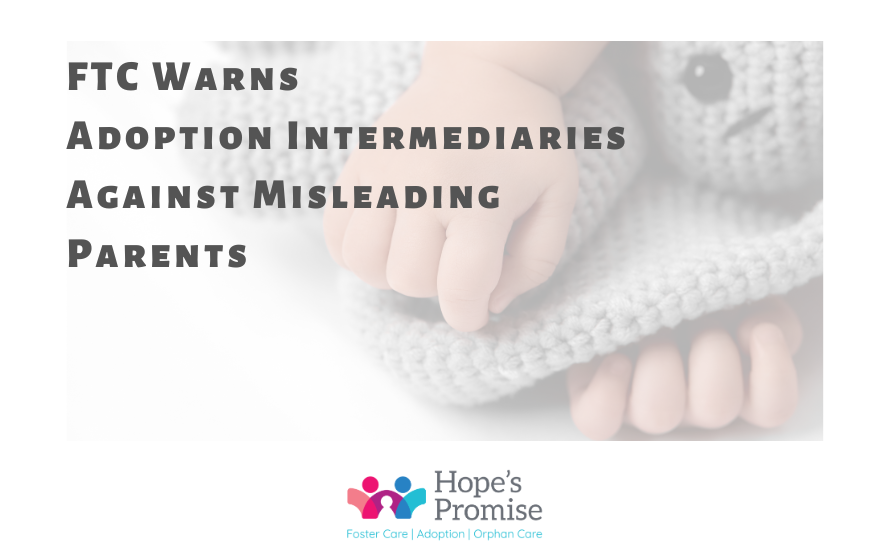FTC Warns Adoption Intermediaries Against Misleading Parents

Facilitated adoptions are also sometimes called “intermediary adoptions” or “adoption intermediaries” Instead of using an agency to match potential adoptive parents with birth parents choosing adoption, the adoption is facilitated by someone other than an adoption agency, usually a for-profit business that isn’t licensed and has no oversight or accountability. Hope’s Promise is proud to be a full-service adoption and child welfare agency. We provide extensive and ethical options counseling to help expectant parents understand all of their options. We continue to provide resources to expectant parents who choose to parent as well as counseling and monthly birth mother support groups when a woman chooses to make an adoption plan for her baby. Our support doesn’t end when the baby is born.
What are adoption intermediaries telling you?
By: Jim Kreidler, Consumer Education Specialist
Federal Trade Commission
If you search online for “adoption agencies near me,” you might see a lot of ads for adoption intermediaries, which might give you the impression that these businesses are state licensed, full-service adoption agencies. But are they?
Today, 31 adoption intermediaries — for-profit businesses claiming to match adoptive parents with birth parents in private adoptions for a hefty fee — got letters from the FTC. These businesses may be breaking the law if they say they’re a licensed adoption agency when they aren’t, make promises they can’t keep, or try to prevent people from posting honest reviews.
If you’re interested in private adoption:
Do your research. Adoption can be a complicated process to navigate. Know that unlicensed adoption intermediaries — sometimes called advertisers, facilitators, or brokers — are not licensed adoption agencies. That means they’re not supervised by their state or bound by its educational, social work, or legal training requirements. If you’re looking for a licensed adoption agency, contact your state department of health and human services for a list.
Consult a lawyer or your state’s adoption resources. Adoption laws vary widely by state, including the amount of time birth parents have to change their mind and how the law handles agreements for open or closed adoptions. Also, even if an adoption provider is licensed in one state, it may not be allowed to work with birth parents or place children in other states.
Check out who you plan to work with. Choosing an adoption provider is a significant decision. Understand what services they do and don’t offer and what their fees cover. Review online complaints, ask for recent references, and check with your attorney general’s office for information about any legal actions.
Spot an unfair or deceptive business practice? Report it to the FTC at ReportFraud.ftc.gov.


